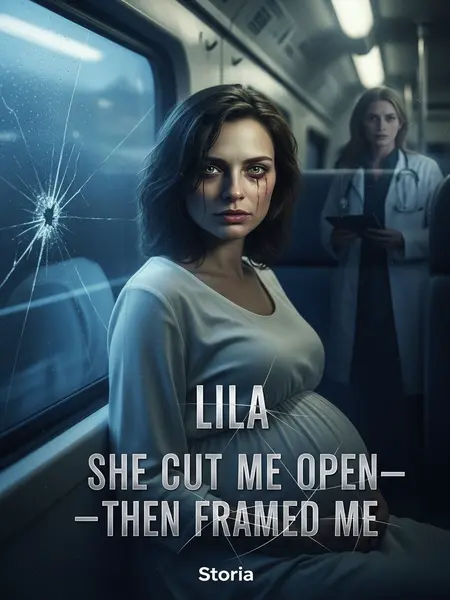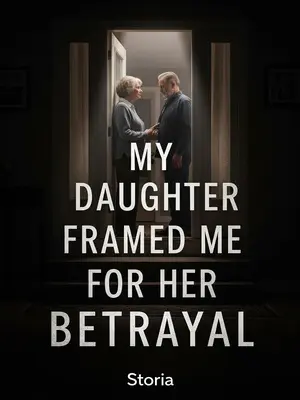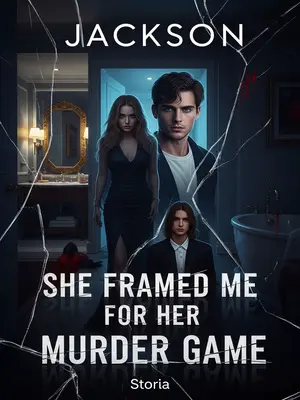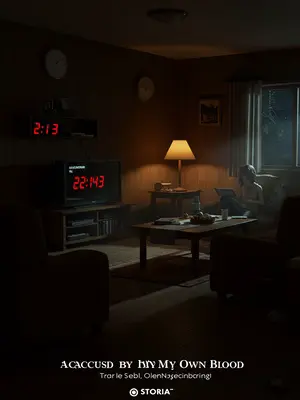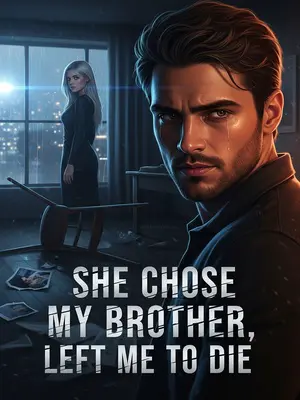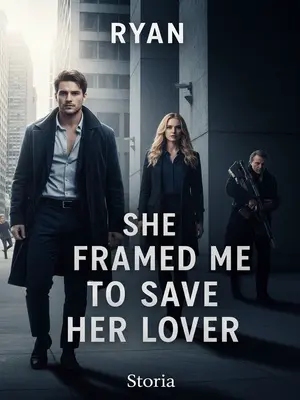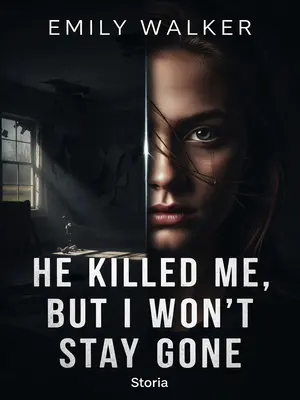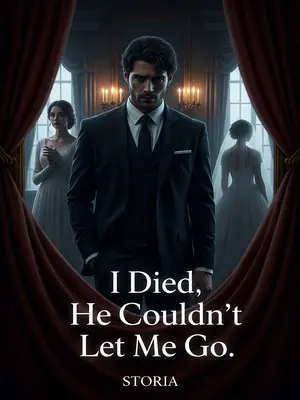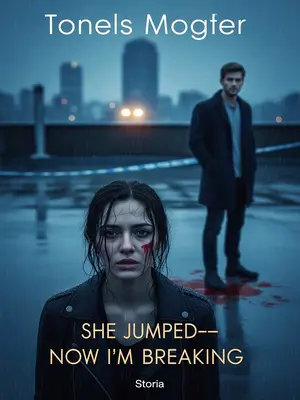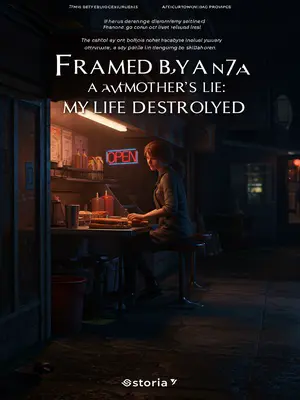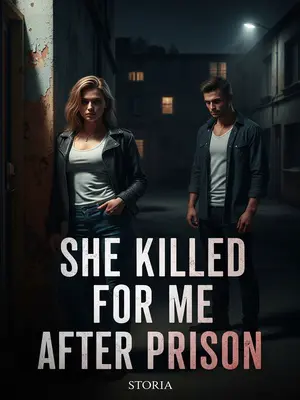Chapter 1: Cut Open on the Train
The train car’s air was thick and stuffy, and sweat prickled along my hairline. I pressed my palm to my belly, trying to steady my breathing, but a sudden, sharp pain knifed through me—so fierce it made my vision blur. My heart pounded in my chest, and a cold dread swept over me. I clutched at the armrest, willing the pain to pass, but it only grew sharper, more insistent. God, what’s happening to me?
The steady rattle of the tracks beneath my seat had lulled me into a false sense of calm, the gentle sway almost comforting. Then, out of nowhere, that comfort vanished. I sat frozen, barely able to process what was happening. Was this real? No, it couldn’t be. But the pain was so immediate, so overwhelming that my world shrank to the throbbing, searing ache in my belly.
After the conductor’s urgent announcement for medical help, a woman named Madison Kelly hurried in from the next car, introducing herself as a doctor. My mind reeled, struggling to keep up. She barely looked at me before she dug her fingers into my stomach, her touch rough and careless. I tried to ask what she was doing, but my words caught in my throat. Then, without a word, she pulled a pocketknife from her bag, flicked it open, and in one horrifying instant, slashed through my clothes. I gasped, the cold air biting at my exposed skin, shame and fear crashing over me. My brain screamed, No, this isn’t happening. But she pressed the blade to my belly and cut. The metallic tang of blood filled the air. I heard my own scream echo off the train walls as the world spun and tilted away.
The conductor’s announcement still echoed overhead when Madison Kelly strode into the car. She couldn’t have been more than twenty-eight, her blonde hair twisted into a messy bun. A hospital ID badge was clipped to her rumpled hoodie. “Madison Kelly, I’m a doctor,” she said, barely glancing at me. Her hands were cold and impersonal as she prodded my belly, her face set in what looked like her best concerned expression. Before I could even protest, she whipped out a pocketknife, snapped it open, and started slicing through my shirt, my jacket, every layer until I was shivering in the frigid air, exposed to everyone. Then, with a motion too fast to stop, she pressed the blade to my skin and cut. I remember the sickening heat of blood, the shriek that tore out of me, and the way everything blurred and spun.
I watched, numb, as my daughter—born at just 28 weeks—was pulled from me. Madison set her aside, and within seconds, she was gone. My mind couldn’t catch up. I kept waiting for someone to step in, to help, but nobody did. The horror of it didn’t hit me all at once; it seeped in slowly, like poison.
Everything was chaos—shouts, footsteps, hands moving everywhere—but all I could see was my baby. She was impossibly tiny, skin tinged purple, limbs no bigger than my pinky. Madison scooped her up with gloved hands and set her down on a folded jacket. My daughter’s chest fluttered, then stilled. No one moved to help. The silence that followed pressed in on me, thick and absolute. It was as if the train had derailed and left us floating in a void. I couldn’t breathe. I couldn’t move.
The next thing I knew, I was in a hospital bed, the memory of my daughter’s last breath haunting me. The doctors told me I’d suffered a severe infection, and they’d had to remove my uterus. The words didn’t make sense at first—they just echoed in my skull, hollow and meaningless.
Everything blurred together after that—blaring ambulance sirens, the harsh glare of white ceiling tiles, the sharp stink of antiseptic in my nose. I woke up tangled in scratchy hospital sheets, my mouth dry, my body heavy with exhaustion. The doctor’s words cut through the fog: “Severe infection. We had to perform a hysterectomy.” Hysterectomy. My womb—gone. The finality of it hit me like a punch to the gut, leaving me gasping. I was empty, inside and out.
When I finally woke up enough to think, I started digging into Madison Kelly’s background. I found out she hadn’t even finished med school, landed at the hospital thanks to ghostwritten research, and had never once stepped into a real operating room. My stomach churned with disbelief and rage.
I lay in bed, scrolling through my phone with trembling hands. I dug through news articles, university forums, even her LinkedIn profile—everything pointed to someone who’d slipped through every crack. She’d switched majors twice, paid people to write her research papers, and gotten her hospital internship through a family friend. She’d never scrubbed in for a single surgery. My chest tightened with nausea as the truth set in.
I found her in the hospital cafeteria, surrounded by a group of interns, and demanded answers. My voice was raw, shaking with anger and grief. “Why did you cut me open? I wasn’t even in labor! You butchered me and killed my baby—why?” My hands trembled so badly I gripped the table for support. The other interns kept their eyes glued to their trays, pretending not to hear.
Later that day, my phone buzzed—a new notification. Madison had posted a video online: footage of me, half-naked and bleeding, as she hovered over me with her knife. Her voiceover was cold, almost bored. “This is proof I saved her life. Now she’s trying to blackmail me.” The comments section exploded with sympathy for her and disgust for me. I felt like I was drowning, every hateful word another stone pulling me under.
After that, the whole town seemed to turn on me. I couldn’t go anywhere without feeling the weight of their stares, the sting of their whispers. In the grocery store, at the pharmacy, even at church—people looked right through me, their eyes full of judgment. I caught bits of conversation: “That’s her, the one who sued the doctor.” “Can you believe she’s blaming the woman who saved her?” My phone filled with messages I couldn’t bear to open. I stopped leaving the house. The walls pressed in, suffocating.
One afternoon, after another neighbor’s hard stare and quick retreat, I snapped. I bolted from my apartment, tears streaming down my face. The world outside was a blur of sound and color. I didn’t see the car until it was too late—the screech of tires, the blare of a horn, and then nothing but blinding pain.
